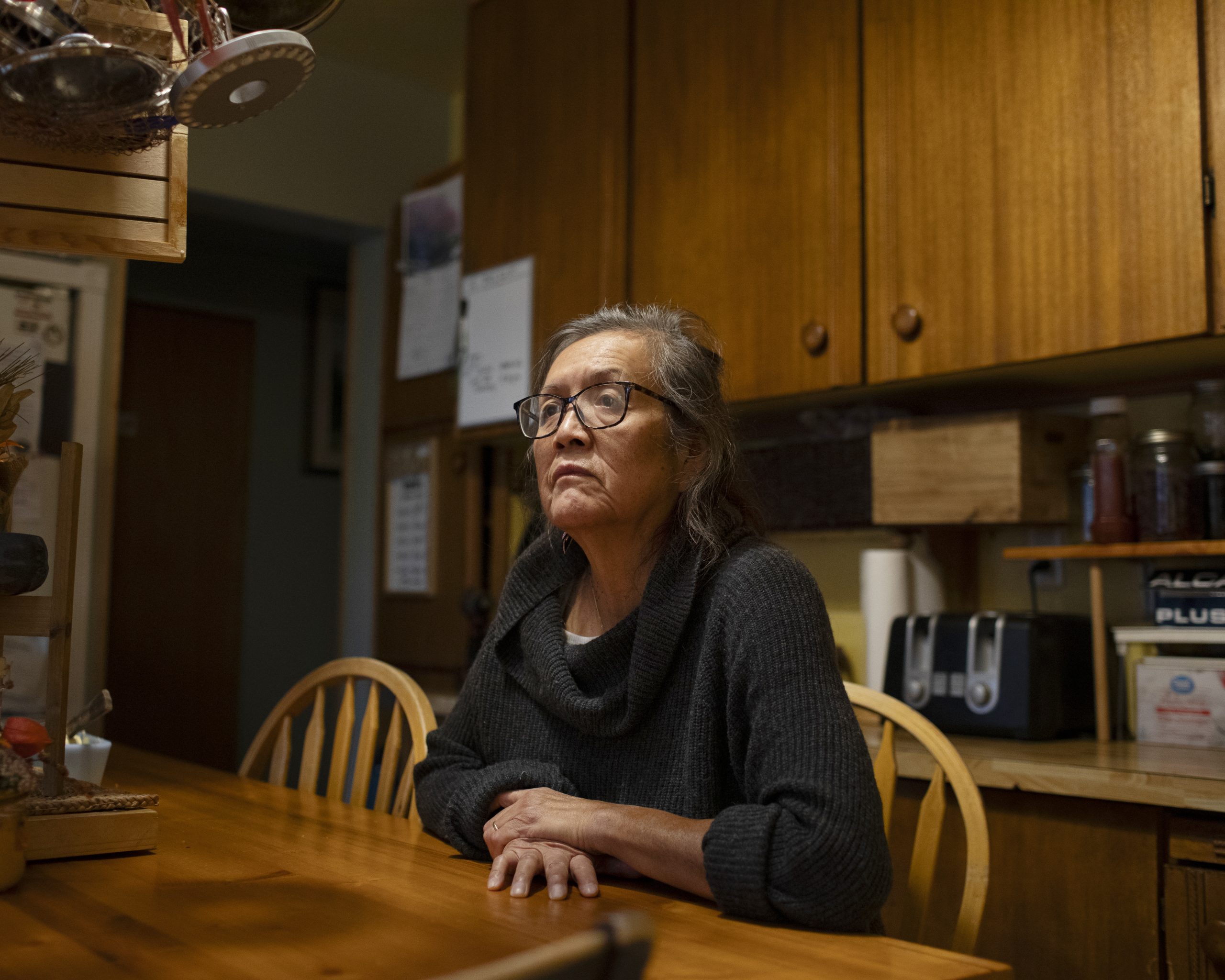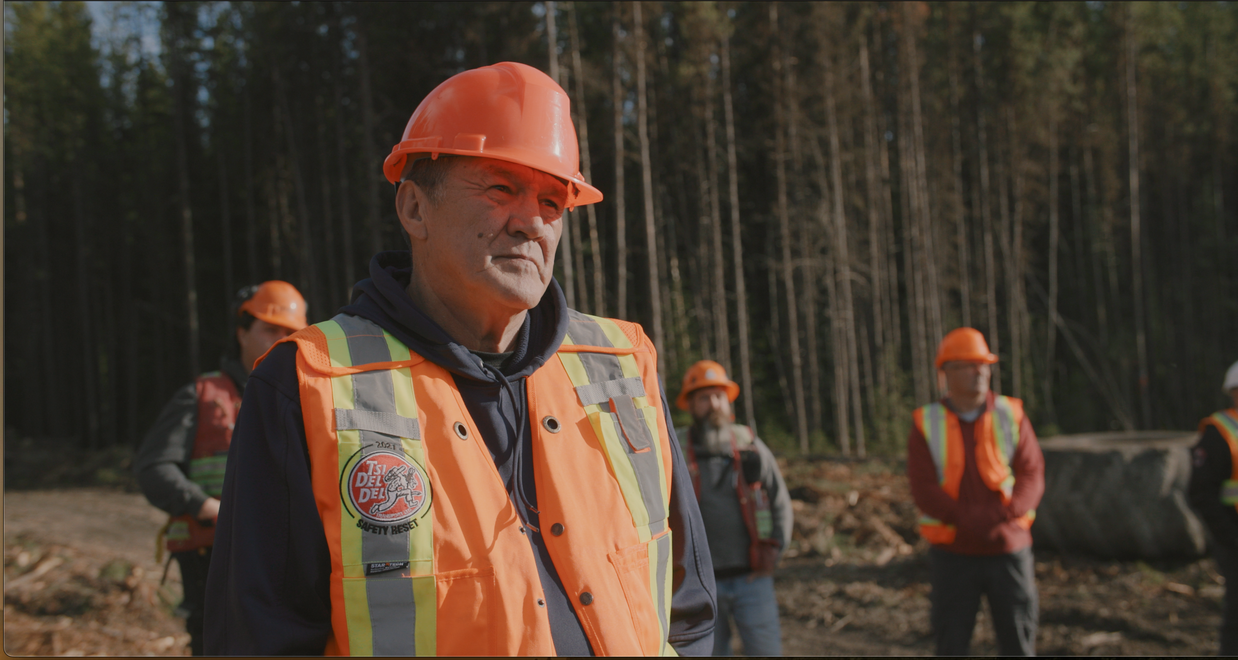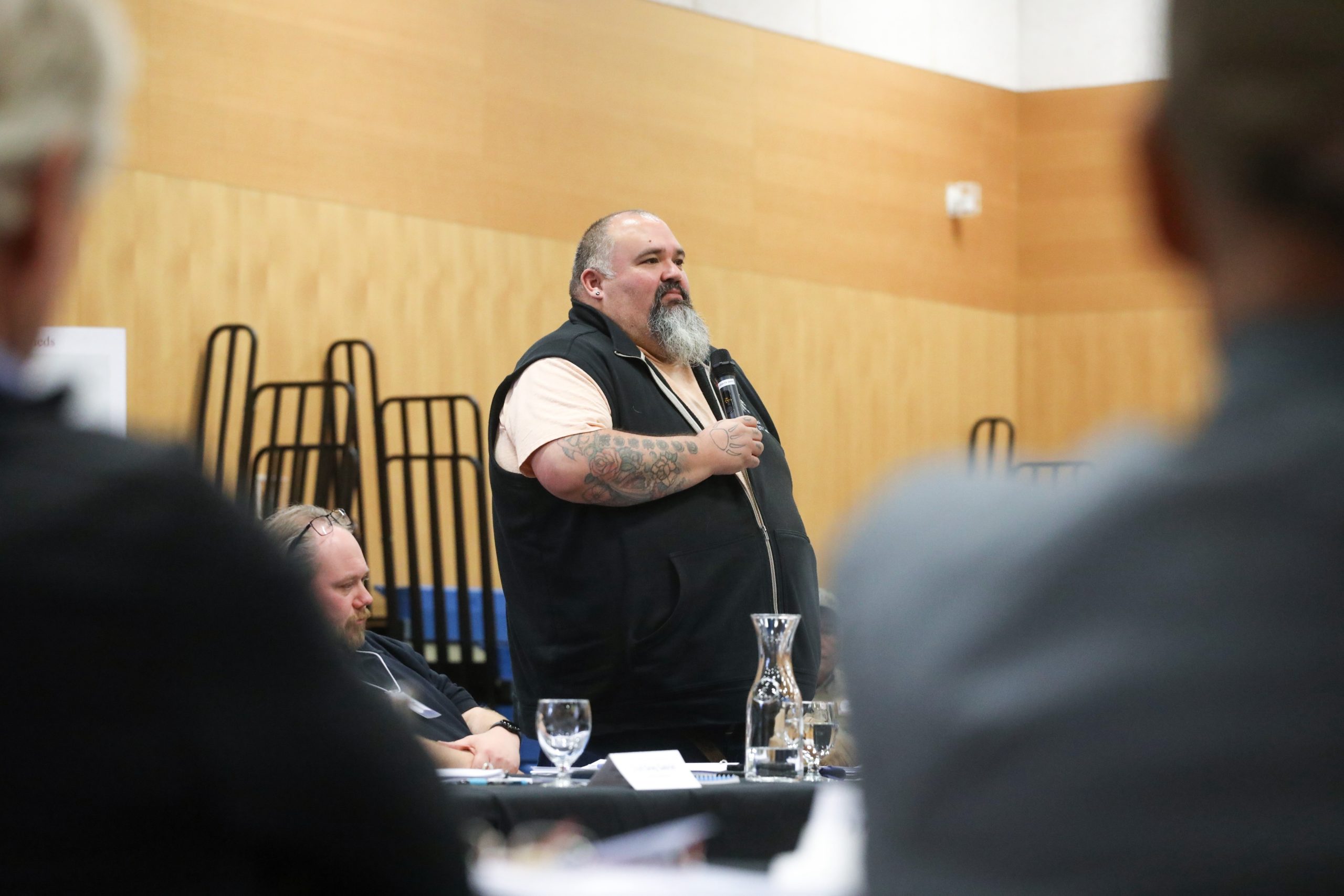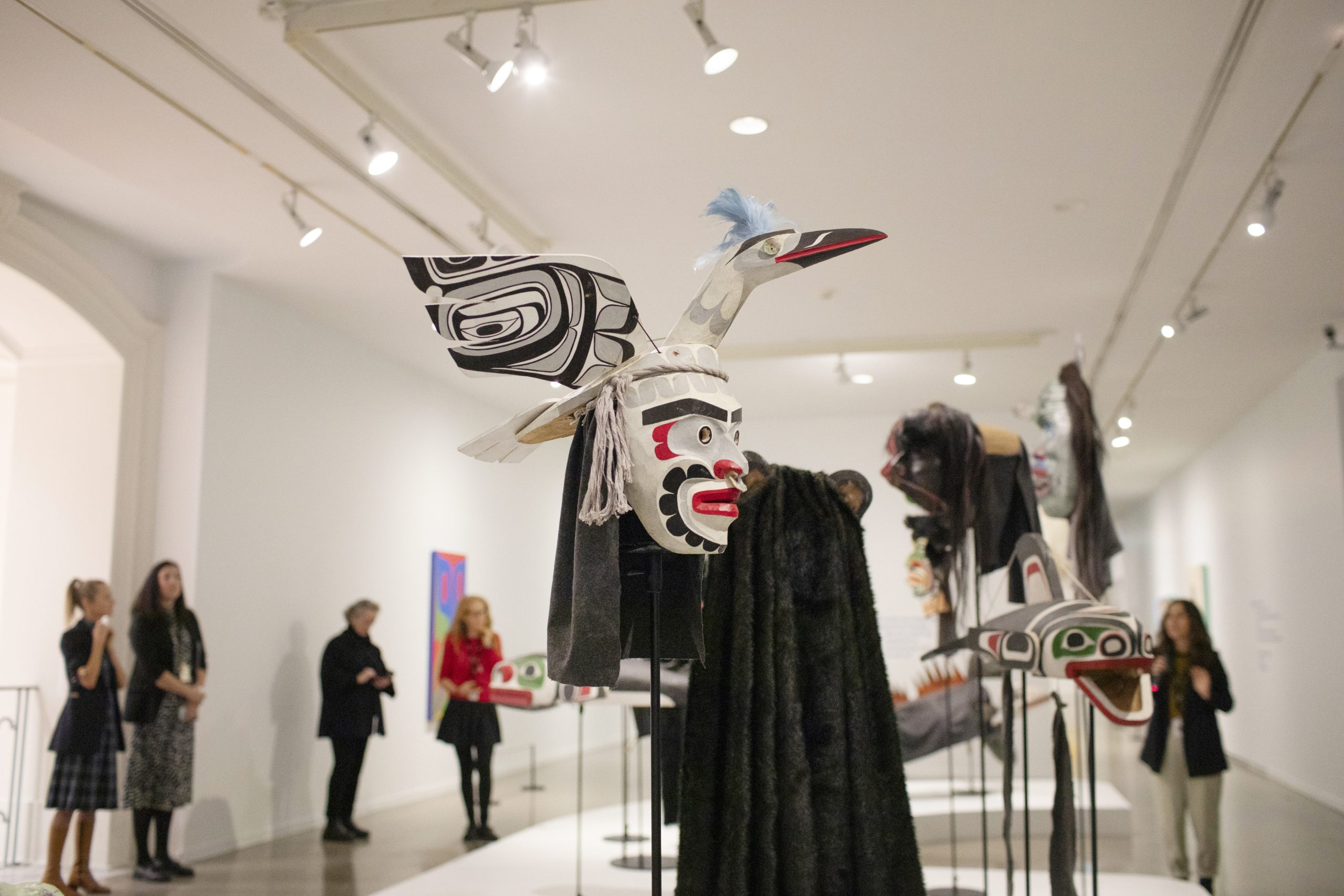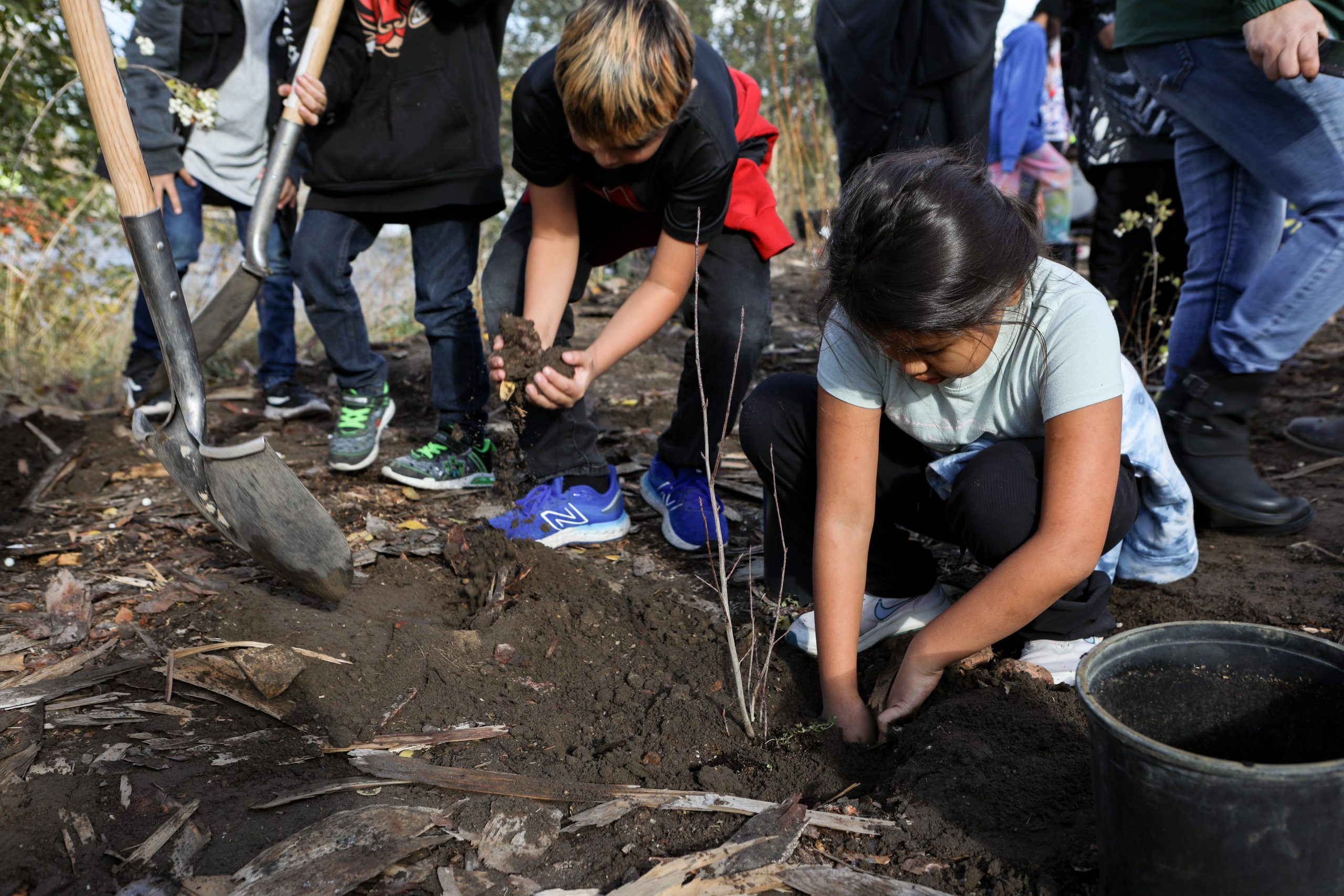Storytelling Intentions I’ve Found
IndigiNews education and child welfare storyteller offers her storytelling intentions alongside collective intentions to help guide us forward.
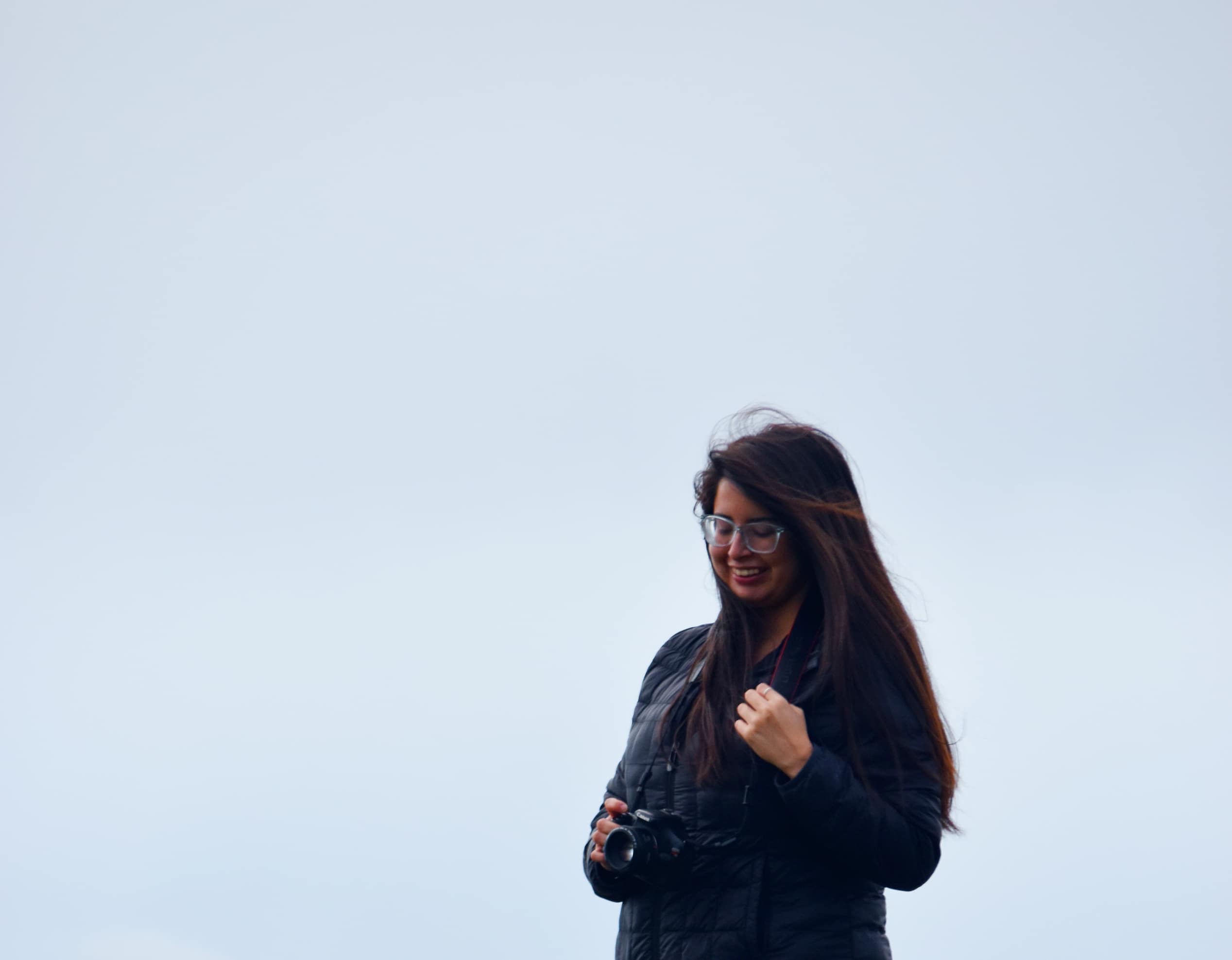
“Speed it up,” my Mom would say to me. I tell stories long, it’s just the way I am. It’s been like this forever. I talk a lot, and I like to share, and I speak in these long arcing phrases that are often jammed into rambles with details that seem unnecessary, but to me are very necessary.
Storytelling is in my soul.
When I was seven my Mom found me writing about my day on scrap pieces of paper, and empty school notebooks. “What’s this?” she asked. I shrugged, not quite sure what it was or why it mattered, all I knew is that I felt like I had to put the stories out somewhere. On my birthday, I opened up my present, a sunset-orange bound book with a flower imprint on the cover. The pages were thick and blank with double-spaced lining, perfect for my awkward seven-year-old handwriting that was still trying to find balance.
I filled up the journal within the year.
“Your greatest talent is your writing,” my Mom would say to me.
I wouldn’t believe her. I wanted something visible as a talent. Something that was performative like fingers across a piano, something that was visible like dance, some feat of athleticism.
But no… Writing, words on a page, stories spoken into the universe, somehow that was my thing. That was the thing I was built to be.
My first experience attending post-secondary school, writing was my thing, but I didn’t know it. I wrote a blog, and I also wrote music. When I applied for a leadership position that involved helping lead a music group I was turned away being told, “maybe you’re meant to be more of a background person.”
It stung.
But then, they added: “We’ve read your writing. You’re really talented.”
It still felt like a backhanded compliment, paired with the “background person” comment, but it seemed like a thread being pulled.
“Everyone can learn to write technically,” my Mom would say to me. “But not everyone can learn to write creatively.”
I knew that everyone had different talents and different gifts, and yet, writing was not the universal skill that I kept assuming it was.
And though I knew it, I didn’t understand.
I transferred to Camosun College where I took Creative Writing classes and then applied to get a Bachelor of Fine Arts in Writing at the University of Victoria (UVic).
I thought that I’d write fiction, but all the fiction classes were filled with no chance of getting in – and that would mean adding another year to my program so I took screenwriting and creative nonfiction instead.
My Mom was happy with the choice, “it’ll be easier to get a job with that,” she’d say. “It’s more practical.”
Creative nonfiction is a writing genre that explores forms such as memoir, literary journalism, travel writing, and personal essays.
Less technical than journalism, but still nonfiction-based.
“Why not be a journalist?” Someone asked me. “Journalism is great, it’s just not my thing,” I replied.
But then I got pulled aside by a professor one day. “Your vaccine piece,” she said. “I think you should send it out for publication. I have some contacts, want me to reach out?” From there, slowly, intrigue crept in. Maybe, journalism was a possibility.
A couple of years later, I got an email from the UVic writing department with a job opportunity sent to all Writing students at UVic: a writing job for a newspaper internship. I applied for it, and a journalism fellowship.
I wanted a writing job, right? Journalism might not be my thing, but it’d be a chance to learn.
And somehow I landed the fellowship at The Tyee.
Since then, it’s been a freefall – writing has always been a part of me, which led me to journalism, and led me to be a full-time storyteller at IndigiNews.
Journalism opened up opportunities to discuss things that I hold close to my heart and are points of passion for me.
As an adopted Indigenous woman with a family who has survived the foster system, I am passionate about discussing child welfare. As a previous daycare worker I am determined to point out all the ways Canada is doing early childhood education, wrong, and in rare cases, right. As a former preschool teacher, I am passionate about ensuring that children are educated and nurtured fairly.
I am firmly rooted and committed to decolonizing the media, and ensuring that Indigenous voices are heard and understood.
These are topics I stand on. These are part of my story, and I am here to share them and be a medium to share stories others would like to share.
This year IndigiNews asked us to write our storytelling intentions for 2022—and my time in journalism and my passions have led me to a few specific goals:
Discuss decolonizing of the classroom. What is Canada doing right and wrong in decolonizing the education system? People’s response to the discovery of children at so-called “residential schools” have shown the failure of the school system in revealing Canada’s history. What is changing? What is staying the same? What needs to change?
Child Welfare. Indigenous children make up two-thirds of the Child Welfare system, but are only 10 percent of the population of children under fourteen in Canada. Let’s unpack that this year, what is Canada doing and not doing, what can change? Where are the problems? Let’s discuss the cracks.
Strengthen my storytelling skills. For me, this means developing my journalistic skills, pursuing more long form articles, taking time for creative nonfiction such as literary journalism, and continually developing my trauma-informed practices.
Decolonize my own thinking. I was adopted and raised in a caucasian household, and–as wonderful as my parents are–I am still trying to decolonize my thinking and find my full place in my Indigenous identity. I’m getting there, but finding my roots is something I hope to be actively pursuing in 2022.
They’re big goals, big intentions. I’m sure as the year progresses there will be more intentions and goals added to my list. But this is the beginning.
I am proud of my journey as a storyteller. I am thrilled to be able to speak on important topics, and have a place in the media as an Indigenous woman.
This is just the beginning.
Author
Latest Stories
-
‘Bring her home’: How Buffalo Woman was identified as Ashlee Shingoose
The Anishininew mother as been missing since 2022 — now, her family is one step closer to bringing her home as the Province of Manitoba vows to search for her
-
After Indigenous teen’s stabbing, his family says the system failed to stop his bullying
Foster parents in ‘Courtenay, B.C.’ speak out after a string of alleged incidents targeting them and their 16-year-old foster son, as they wait for trial
-
‘We all share the same goals’: Tŝilhqot’in and syilx foresters learn from each other
Nk’Mip Forestry and Central Chilcotin Rehabilitation visit their respective territories, sharing knowledge and best practices



